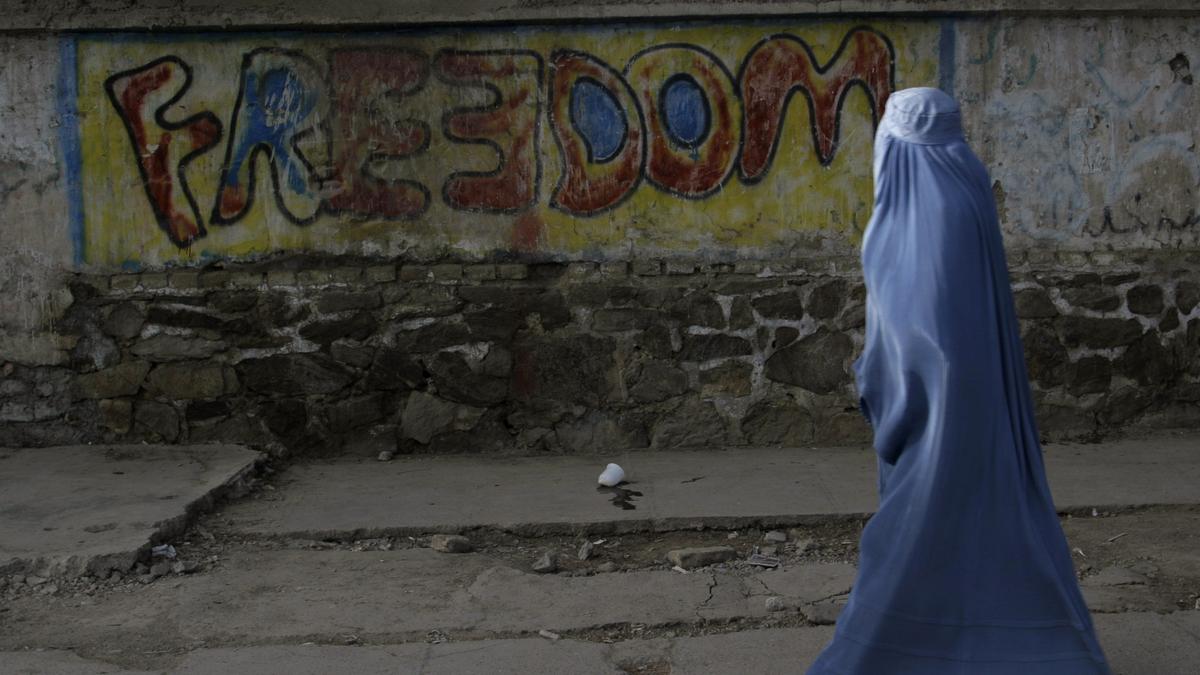The Taliban government’s recent enactment of a strict morality law has sparked international condemnation and heightened tensions between the de facto authorities and the international community. The law, which dictates a wide range of social and religious behavior, including mandatory face veils for women and restrictions on public gatherings, has been met with widespread criticism, particularly from the United Nations (UN) which views the legislation as a step backward for human rights and a hindrance to potential engagement with the international community.
The Morality Law: A Source of Controversy
The Taliban government’s Ministry for the Propagation of Virtue and the Prevention of Vice (PVPV) published the 35-article morality law in July 2023, outlining a strict code of conduct for Afghan citizens. The law covers various aspects of daily life, including dress code, social gatherings, music, and even the observance of non-Muslim holidays.
Key Provisions of the Law
The law dictates that women must cover themselves completely, leaving only their eyes visible. Men are also subject to dress code requirements, and restrictions are placed on the length of their beards. The law prohibits public gatherings and prohibits the keeping of pictures of living beings, viewing it as a violation of Islamic teachings. Notably, the law also bans homosexuality, animal fighting, and public music.
Enforcement and Punishment
The PVPV enforces the law through a system of gradual punishments, starting with verbal warnings and escalating to fines, detentions, and other penalties depending on the severity of the offense. This system has fostered a climate of fear and uncertainty for many Afghan citizens, who fear repercussions for even minor violations.
The UN’s Condemnation and Concerns
The United Nations, particularly the UN Assistance Mission in Afghanistan (UNAMA), has been vocal in its criticism of the morality law, viewing it as a serious threat to human rights, particularly those of women. The UN has labeled the law a “distressing vision for Afghanistan’s future,” citing the potential for abuse and arbitrary enforcement by the PVPV.
UNAMA’s Position and Engagement
UNAMA has consistently urged the Taliban government to reconsider the morality law and has expressed concerns about the ministry’s growing role in enforcing religious law and creating a “climate of fear” in Afghanistan. UNAMA has also criticized the ban on its special rapporteur on human rights in Afghanistan, Richard Bennett, who was prevented from entering the country after speaking out against the Taliban’s human rights abuses.
International Response and Implications
The UN’s condemnation of the morality law is not isolated. The European Union has also expressed concerns, suggesting that the legislation could harm prospects for international engagement and recognition of the Taliban government. The international community, while reluctant to engage with the Taliban, has sought to push for respect for human rights and to prevent the further deterioration of the humanitarian situation in Afghanistan. However, the Taliban government’s response to international criticism has been unwavering, maintaining that the morality law is rooted in Islamic teachings and that any criticism is an attack on their values and beliefs.
The Taliban’s Stance and Justification
The Taliban government has defended its morality law, arguing that it is based on Islamic principles and that international criticism reflects a lack of understanding of their faith. They have emphasized the importance of preserving traditional values and adhering to religious dictates in Afghan society.
The Role of Islamic Interpretation and Traditional Values
The Taliban views the morality law as a crucial step in implementing their vision for a religiously governed state. They have presented their interpretations of Islamic law as authoritative and have framed international criticism as an attempt to impose Western values on Afghan society.
Resistance to International Influence and “Gender Apartheid”
The Taliban’s response to international pressure also reveals a broader resistance to international influence. Their efforts to maintain control over the narrative surrounding the morality law and their emphasis on Islamic values suggest a determination to assert their authority and resist external pressures. The Taliban has been particularly vocal in its rejection of international criticism of their restrictions on women, which the UN has labelled “gender apartheid”.
A Potential Path Forward?
Despite the strong condemnation and ongoing concerns, there remains a need to find a path toward dialogue and reconciliation in Afghanistan. While the current environment appears challenging, it’s crucial to acknowledge the complexities of the situation and the deep-rooted historical context in which these events are unfolding.
Understanding and Engaging with Cultural Values
An understanding of the interplay between traditional values, cultural norms, and religious interpretation is essential for any effective engagement with the Taliban government. The international community needs to find a way to bridge the gap in perspectives and communicate its concerns in a way that respects Afghan cultural sensibilities and recognizes the influence of Islamic teachings.
Advocating for Human Rights While Maintaining Open Lines of Communication
The challenge is to maintain open lines of communication and to advocate for human rights, including women’s rights, without alienating the Taliban government. It is necessary to pursue a path that addresses concerns about the morality law and its impact while also seeking opportunities for cooperation on matters of shared interest, such as the humanitarian crisis in Afghanistan.
Takeaways
- The Taliban government’s implementation of a strict morality law has sparked international condemnation and heightened tensions.
- The UN and other international bodies have expressed strong concerns about the law’s impact on human rights, particularly those of women, and its potential to create a climate of fear.
- The Taliban government maintains that the morality law is grounded in Islamic teachings and defends it as a necessary step toward establishing a religiously governed state.
- Finding a path forward in Afghanistan requires understanding the cultural context, advocating for human rights, and engaging in open and respectful dialogue to potentially navigate this complex situation.









